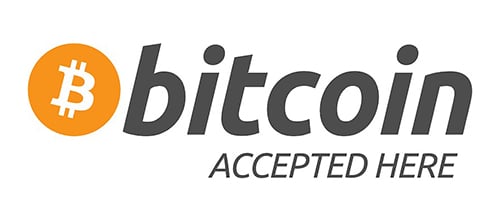On May 14th, the Supreme Court struck down a federal law that required states to ban gambling on the outcome of sporting events.
Previously the Professional and Amateur Sports Protection Act stated that sports’ gambling was legal on a federal level, but non-permitted by individual States.
The State of New Jersey challenged the federal ban, arguing that it violated the Tenth Amendment, which the Supreme Court has said prohibits federal laws that compel states to carry out federal dictate.
Fans, gamblers, sports teams and speculators all rejoiced when hearing this long-anticipated news. The floodgates have now opened up for all parties to capitalize on the opportunity to make some money in this space.
Indeed, this is non more so for the blockchain based betting projects.
Betting on Blockchain
There is a large emerging crop of Blockchain companies focused on disrupting this industry through the use of decentralized, immutable databases that establish trust and improve the efficiency of transacting between fans and bookmakers.
Beyond improving the betting game itself, Blockchain technology has the potential to implement self-governed systems of control that give the outcomes more transparency. The game payouts are governed by the protocol and nothing more.
There are a number of differences between traditional betting and blockchain based betting. These include the way that games are funded and the amount of information that is provided to the players.
Funding and Payouts

Banks and non-Blockchain digital wallets have always been weary of attaching themselves to online sports betting sites. So much so, that popular betting sites like Bovada would often register the label of their deposits under ‘Gym membership’ or ‘Magazine subscription’ so as to not show up on your Bank Of America bank statements.
Without the reliability of traditional payment gateways to fund sports betting accounts, many have relied on slower, less secure gateways like Money Global or Net seller. These subpar services only make the winning withdrawal process more difficult.
Using Blockchain technology, payments can easily be made by sending funds through your digital wallet, placing your bets in Bitcoin (or whatever tokens the platform uses), and then withdrawing by sending the funds back to your wallet.
Lack of Transparency: “House Always Wins”
The phrase ‘the house always wins’ is indicative of the notorious reputation sports betting houses have for establishing obscure rules that give them the advantage no matter what the outcome of the game is.
Bookmakers have several years worth of statistical analysis to use when determining what the odds should be set for a particular bet.
The odds of an event are always setup in a way that guarantees a profit for the house, regardless of which team wins. Any attempt to use clever strategies to hedge your bets are usually stamped out if you’re caught winning "too much".
Such circumstances can only come about from a lack of transparency on behalf of these centralized institutions.
Decentralised Alternatives
 Image via Fotolia
Image via FotoliaPlatforms like Blitzpredict collect data from multiple sports books and prediction markets, making sure you get to view the best available odds before placing your bets, as well as the quickest form of payout.
Similarly, Augur (REP) harnesses the ‘wisdom of the crowd’ to create a decentralized platform for prediction markets. Users buy and sell shares on the outcome of future events, with the pricing dictated by the crowd-sourced likelihood of the event occurring.
Betheruem provides a decentralized betting platform that doesn’t rely on centralized bookmakers operating as middlemen. Using their Bether token, people can place wages with each other directly on the outcome of an event, and the Ethereum smart contract technology will facilitate the transfer of funds from one party to the next based on who wins. Players set the odds and all transactions are visible on the Blockchain.
What Comes Next?
The ruling to legalize sports betting across all states is just the beginning of a long process in which stakeholders (betting sites, States, Sports teams, etc) will now fiercely negotiate what piece of the $150 billion sports betting pie belongs to them.
Currently, the NBA, MLB and the NFL are negotiating with a handful of states on "integrity fees". Integrity fees are a tax on legal sports betting that is designed to cover the costs of policing the institution.
 Sports Betting Hall. Stock Image
Sports Betting Hall. Stock ImageSports leagues would much rather negotiate the fee with Congress, who then would require the States to pay the same fee all across the board. However that same ruling would contradict the very mandate that allowed sports betting to be legalized in the first place.
If left up to the different States, there’s no guarantee that there will be consensus. What is most likely to happen is that certain states will offer a fair price, while others won’t, and some (like New Jersey) may not wish to negotiate at all.
The most recent reports are that the Sports leagues fee demands have been lowered from 1% to 0.25%, and are currently being negotiated with Kansas, Connecticut, Indiana and New York.
There is also the debate about how intellectual property rights fit into the negotiating process. The ability for sports betting sites to use team names, logos and images in promoting their site is crucial to their success, and could therefore create stronger negotiating leverage for the Leagues.
The States also have the power to determine how sports’ betting is run in their area. For example, some may require all betting be done at a few single physical locations instead of online. Some may choose to operate in isolation from other States, creating shark pools of betting.
Skilled vs. “Just for Fun”
A big part of the allure of sports betting is the fun that comes with friends betting on their favorite team and hoping the Sports Gods make them lucky. The other side of this is the skilled gamers, who use advanced algorithms and mathematics to compute the probability of different outcomes.
The States will need to decide if these people should be allowed to play against the average Joes who are just betting on a whim. Should skilled players be matched with skilled players? How would these categories be determined?
The legal complexity only grows as more questions are asked. Even in the Blockchain space, it doesn’t seem like this problem is being addressed.
Policing New Entrants
The rise of new Blockchain companies in this space also raises the complexity of negotiations. What rules does a decentralized autonomous organization have to play by? Do peer-to-peer sports betting platforms really need to pay an integrity fee? And if they chose not to, how could such laws ever be enforced?
The SEC is still trying to wrap their heads around what Blockchain is, and whether certain coins are a security or utility. So in the immediate term, it doesn’t seem like much effort is going to be placed on negotiating with Blockchain sports betting companies.
Traditional betting institutions are the current face of sports betting, so I believe they will bear the brunt of whatever fees and restrictions come their way, before the league and eventually the States begin to set their sites on Blockchain based companies.
Conclusion
Ultimately it looks like the sports betting fans will be the biggest winners of this new Supreme Court ruling.
Legalizing sports betting in 2018 not only gives them the freedom to use existing services above board, but also opens the doors for them to try a variety of new decentralized applications that offer more trust, security and efficiency in the betting process.
Traditional players in the space will also start to make the jump towards a more decentralized framework in order to reduce the costs and time of processing payments/making withdrawals.
Prior to the Supreme Court rulings, many sports betting sites like Bovada and Intertops had been accepting Bitcoin as an alternative form of payment. This makes them already familiar with the technology and its benefits.
It remains to be seen how the various stakeholders will support each other in the space. However, if one thing is clear, it’s that the Blockchain would be the perfect technology to provide a transparent open ledger for Governments to regulate, sports leagues to monetize.



